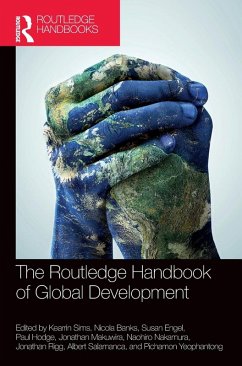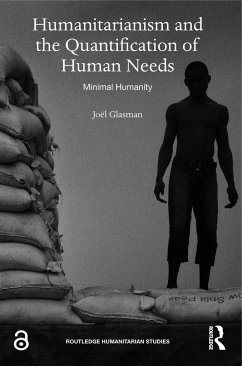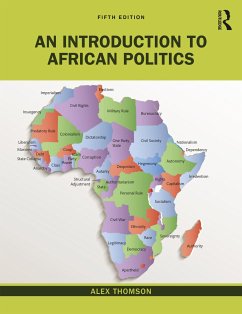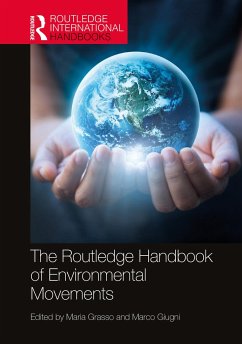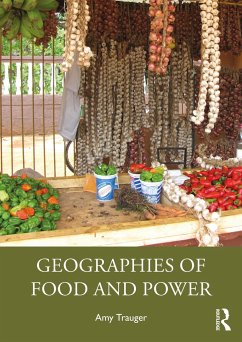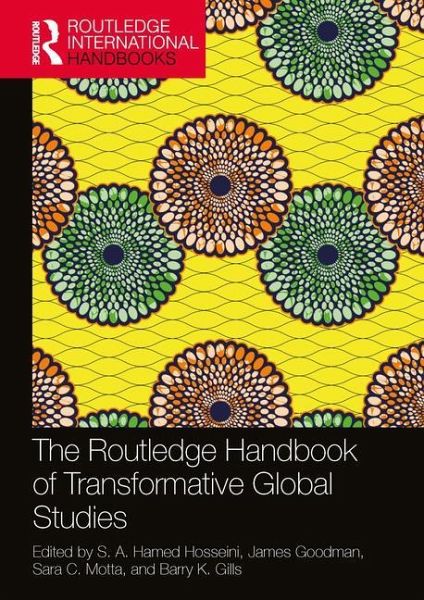
The Routledge Handbook of Transformative Global Studies

PAYBACK Punkte
26 °P sammeln!
The Routledge Handbook of Transformative Global Studies provides diverse and cutting-edge perspectives on this fast-changing field. For 30 years the world has been caught in a long 'global interregnum,' plunging from one crisis to the next and witnessing the emergence of new, vibrant, multiple, and sometimes contradictory forms of popular resistance and politics.This global 'interregnum' - or a period of uncertainty where the old hegemony is fading and the new ones have not yet been fully realized - necessitates critical self-reflection, brave intellectual speculation and (un)learning of perce...
The Routledge Handbook of Transformative Global Studies provides diverse and cutting-edge perspectives on this fast-changing field. For 30 years the world has been caught in a long 'global interregnum,' plunging from one crisis to the next and witnessing the emergence of new, vibrant, multiple, and sometimes contradictory forms of popular resistance and politics.
This global 'interregnum' - or a period of uncertainty where the old hegemony is fading and the new ones have not yet been fully realized - necessitates critical self-reflection, brave intellectual speculation and (un)learning of perceived wisdoms, and greater transdisciplinary collaboration across theories, localities, and subjects. This Handbook takes up this challenge by developing fresh perspectives on globalization, development, neoliberalism, capitalism, and their progressive alternatives, addressing issues of democracy, power, inequality, insecurity, precarity, wellbeing, education, displacement, socialmovements, violence and war, and climate change. Throughout, it emphasizes the dynamics for system change, including bringing post-capitalist, feminist, (de)colonial, and other critical perspectives to support transformative global praxis.
This volume brings together a mixture of fresh and established scholars from across disciplines and from a range of both Northern and Southern contexts. Researchers and students from around the world and across the fields of politics, sociology, international development, international relations, geography, economics, area studies, and philosophy will find this an invaluable and fresh guide to global studies in the 21st century.
This global 'interregnum' - or a period of uncertainty where the old hegemony is fading and the new ones have not yet been fully realized - necessitates critical self-reflection, brave intellectual speculation and (un)learning of perceived wisdoms, and greater transdisciplinary collaboration across theories, localities, and subjects. This Handbook takes up this challenge by developing fresh perspectives on globalization, development, neoliberalism, capitalism, and their progressive alternatives, addressing issues of democracy, power, inequality, insecurity, precarity, wellbeing, education, displacement, socialmovements, violence and war, and climate change. Throughout, it emphasizes the dynamics for system change, including bringing post-capitalist, feminist, (de)colonial, and other critical perspectives to support transformative global praxis.
This volume brings together a mixture of fresh and established scholars from across disciplines and from a range of both Northern and Southern contexts. Researchers and students from around the world and across the fields of politics, sociology, international development, international relations, geography, economics, area studies, and philosophy will find this an invaluable and fresh guide to global studies in the 21st century.





